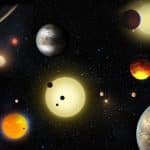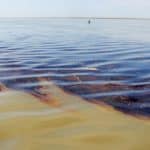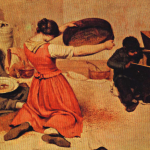- Whenever a chemical change occurs, we can say a chemical reaction has taken place.
- Observations that determine whether a chemical reaction has taken place are:
- Change in state
- Change in color
- Evolution of gas
- Change in temperature
Also read: Indian Agriculture
- Chemical Reactions: It involves breaking and making of bonds between atoms to produce new substances.
- Types of Chemical Reactions are:
1.Combination Reaction: A reaction in which a single product is formed from two or more reactants is known as a combination reaction.
eg: Calcium Oxide reacts vigorously with water to produce slaked lime ( calcium hydroxide) releasing a large amount of heat.
Reactions in which heat is released along with the formation of products are known as exothermic chemical reactions. Examples of exothermic reactions are: burning of natural gas, respiration and decomposition of vegetable matter into compost.
2. Decomposition Reaction: When a single reactant breaks down to give simpler products it is called a decomposition reaction.
eg: Calcium carbonate upon heating decomposes to form calcium oxide (lime or quick lime) and carbon dioxide. This is an important decomposition reaction used in industries.
Quick Lime is used in the manufacture of cement.
When a decomposition reaction is carried out by heating, it is called thermal decomposition.
Decomposition reactions require energy in the form of heat, light or electricity for breaking down the reactants. Reactions in which energy is absorbed are called endothermic reactions.
3. Displacement Reaction: In such a reaction a more reactive element displaces a less reactive element from its compound. For example, Iron displaces Copper from Copper Sulphate solution and forms Iron Sulphate.
4. Double Displacement Reaction: Chemical reactions in which one component each of both the reacting molecules is exchanged to form the products. During this reaction, the cations and anions of two different compounds switch places, forming two entirely different compounds. It generally takes place in an aqueous solution.
eg: AB + CD → AD + CB
Any reaction that produces an insoluble substance (salts) or precipitate is called a precipitation reaction.
5.Oxidation and Reduction: If a substance gains oxygen or loses hydrogen during a reaction, it is said to be oxidized.
If a substance loses oxygen or gains hydrogen during a reaction,it is said to be reduced.
When in a reaction, one reactant gets oxidized while the other gets reduced it is called an oxidation-reduction reaction or a Redox reaction.
eg: (a) Corrosion- When a metal is attacked by substances around it such as moisture, acids etc, it is said to corrode and the process is called corrosion.
(b) Rancidity- When fats and oils are oxidized, they become rancid and their smell and taste change.
So substances which prevent oxidation (antioxidants) are added to foods containing fats and oil.
Keeping food in air tight containers can also help in slowing down oxidation.
This is the reason why chips manufacturers usually flush bags of chips with nitrogen gas to prevent the chips from getting oxidized.











